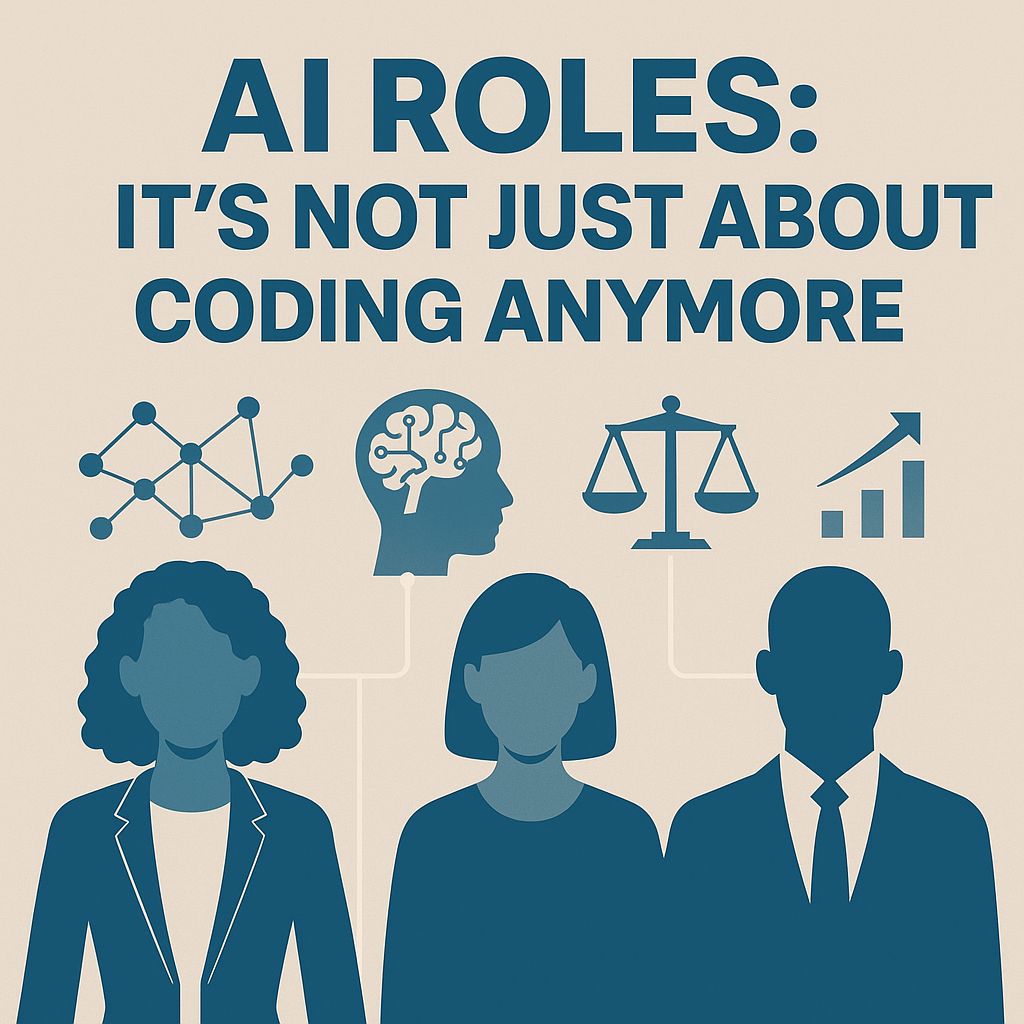Spoiler: not necessarily.
The perception that “AI = coding” is still strong. But as artificial intelligence expands into nearly every sector, a growing number of high-impact roles require little to no programming at all.
Here is the reality: successful AI teams are not made up exclusively of software engineers. They also need:
- AI Translators – professionals who bridge the gap between technical teams and business stakeholders.
- Ethics & Governance Specialists – experts who navigate the regulatory, social, and legal implications of AI.
- AI Analysts – individuals who interpret data outputs, evaluate model performance, and inform decision-making.
- Domain-Specific Strategists – professionals who understand how AI applies to healthcare, finance, education, or security.
These roles are essential because they bring context, accountability, and strategic direction—qualities no model can code for itself.
The challenge? Many professionals interested in these positions assume they “do not have the right background” because they are not coders. In reality, their industry experience, communication skills, and analytical mindset are often exactly what AI teams need.
If you are an educator or mid-career professional thinking about AI, here are the takeaways:
- Yes, coding knowledge is useful—but it is not the only path.
- University certificate programs and professional certifications (e.g., BlueCert™) can validate your skills and help you pivot confidently.
- AI literacy, critical thinking, and domain expertise will increasingly define competitive advantage in this space.
The next wave of AI adoption will not just be built by programmers. It will be driven by interdisciplinary professionals who can connect technology to real-world impact.
Question:
What are the most important non-coding skills for professionals looking to work in AI?

